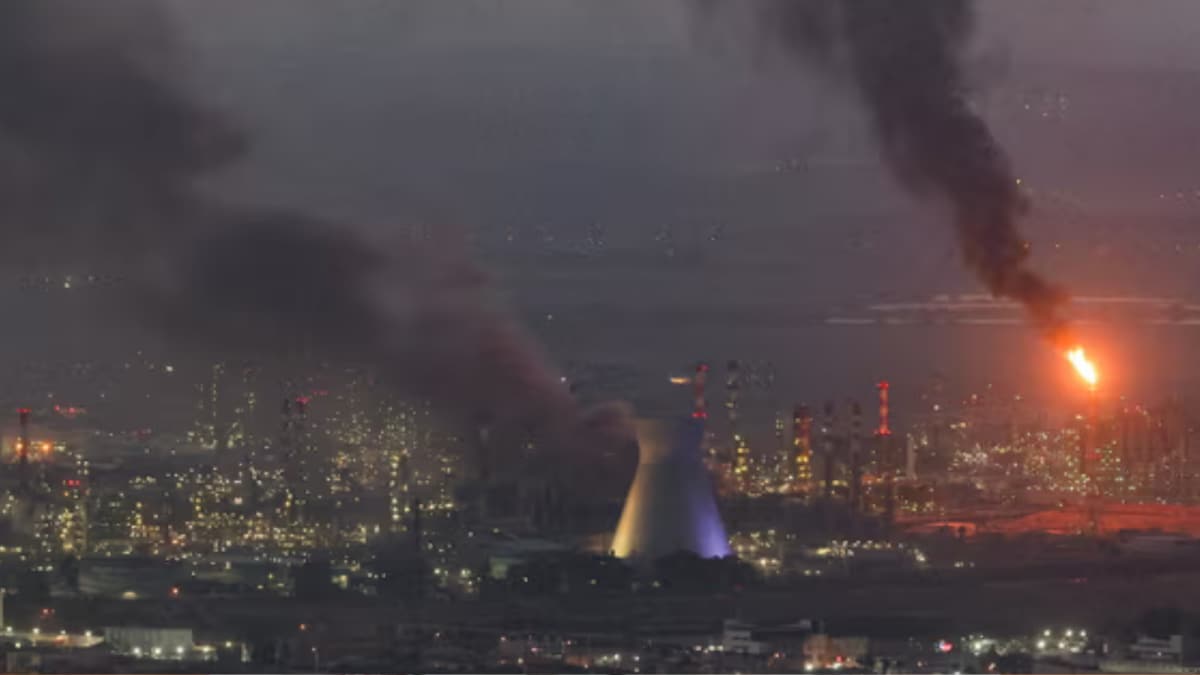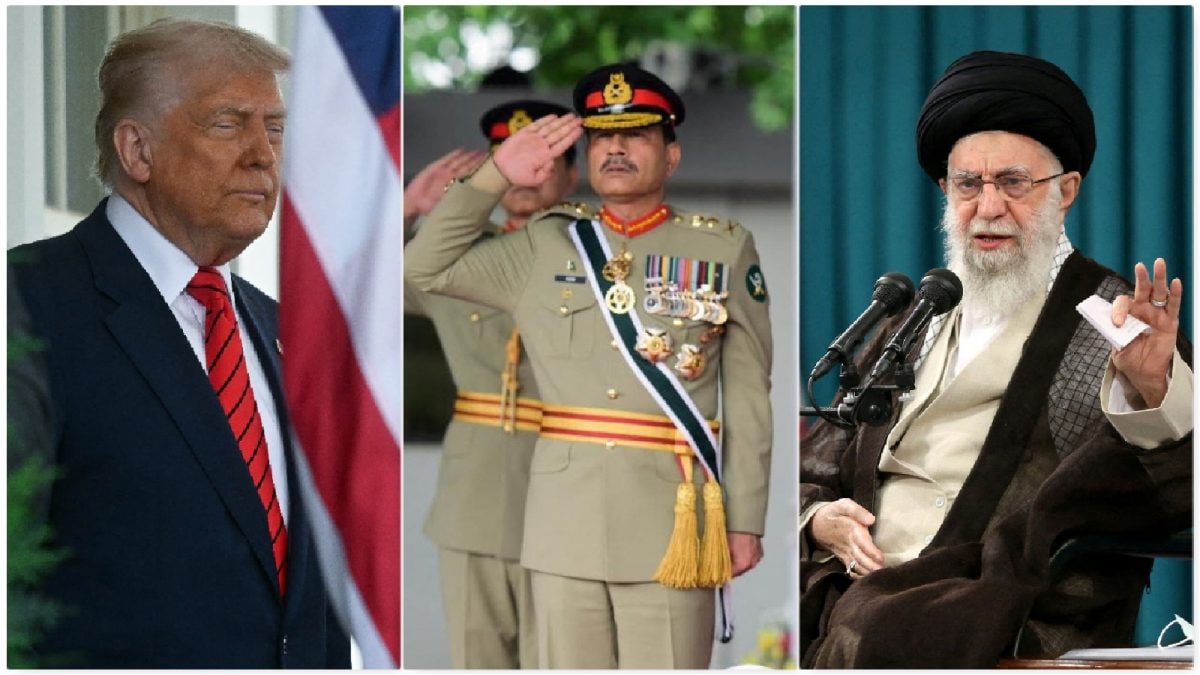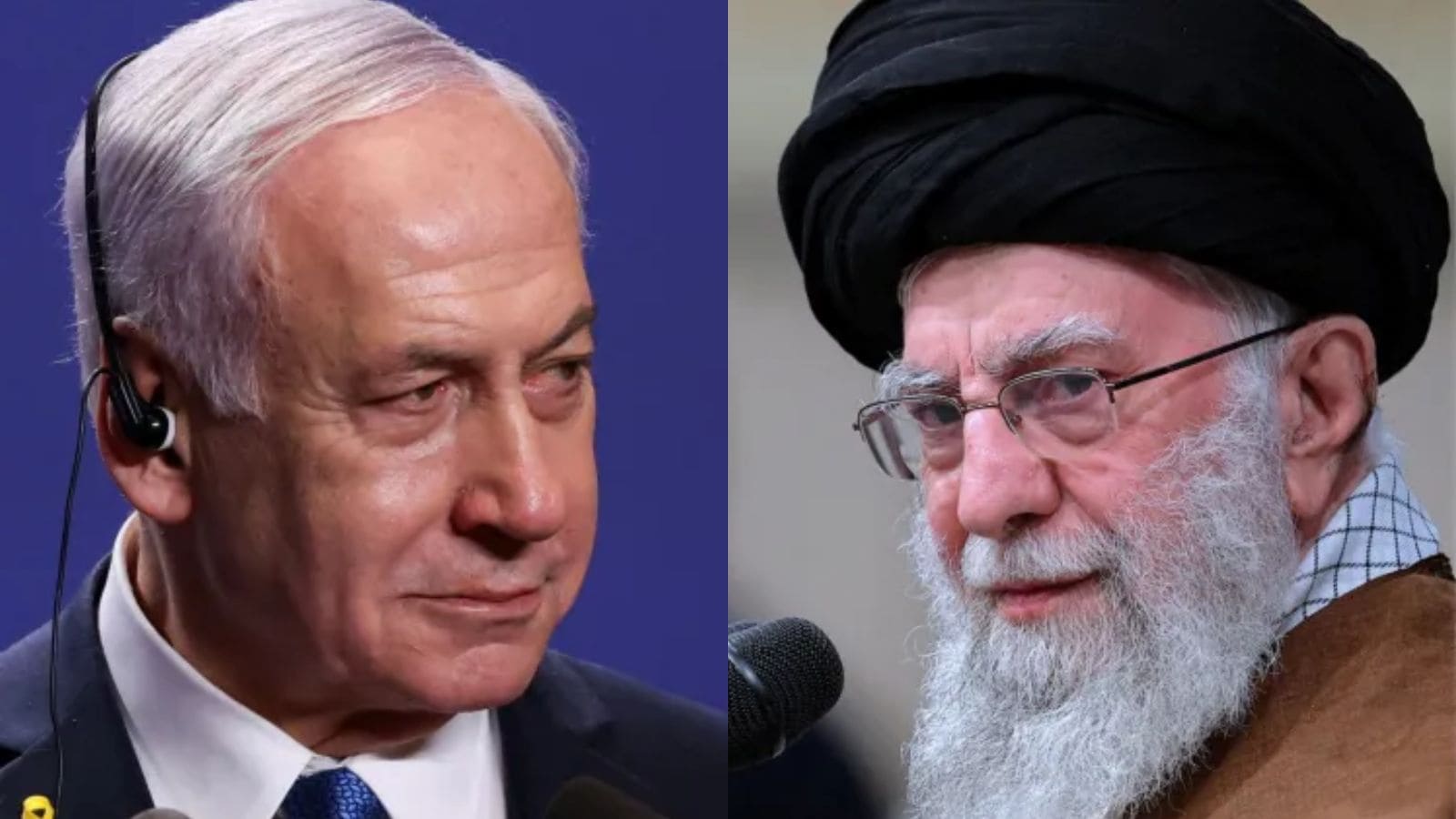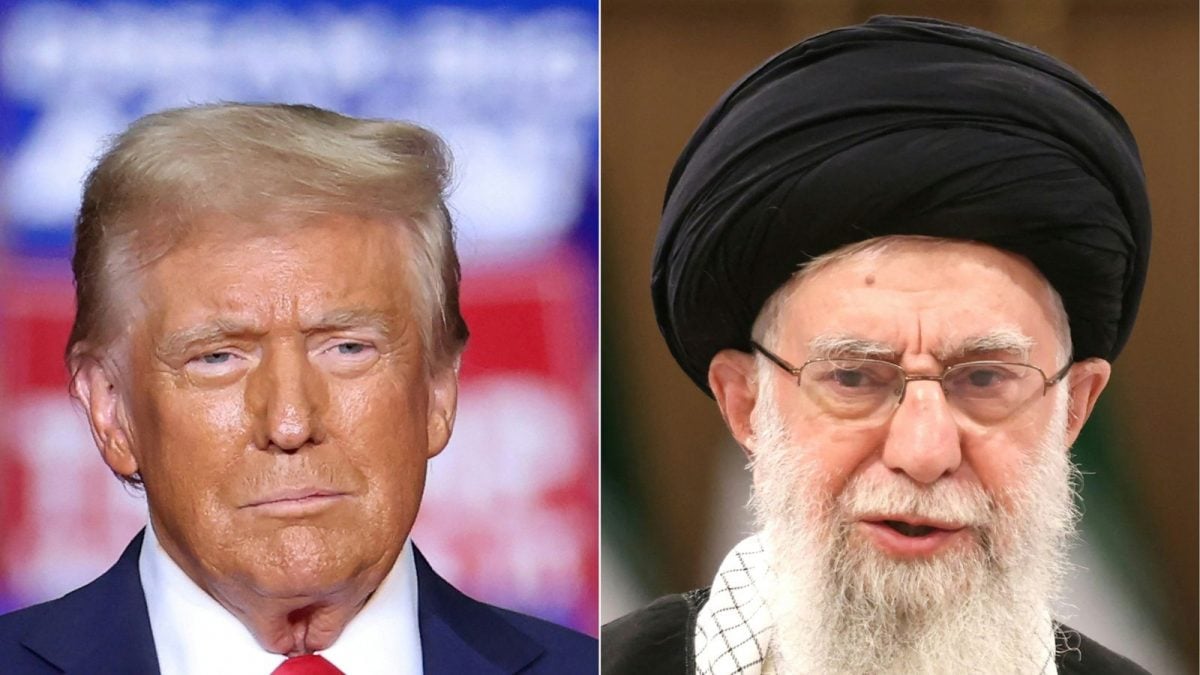ARTICLE AD BOX
Last Updated:June 20, 2025, 14:55 IST
The Israel-Iran-US developments over seven days, which have left the world wary and confused, have given rise to one question – What is Israel’s endgame?

Amid Israel's strikes, Iran has remained defiant. (AP)
On June 13, Israel launched its Operation Rising Lion, claiming it wanted to destroy Iran’s nuclear programme. Amid Israel’s attempts to get the US involved came US President Donald Trump’s barrage of boastings — how Iran’s Supreme Leader Ayatollah Ali Khamenei is a small target, how he stopped Israel from killing Khamenei and how Iran did not take the deal offered to it and “big things" were happening. Meanwhile, Israel PM Benjamin Netanyahu on June 17 insisted that a regime change could be a byproduct of the conflict. In all this, Iran remains defiant.
By June 20, Trump said he would decide if he should participate in the strikes in two weeks; while Russian President Vladimir Putin’s spokesperson Dmitri Peskov said the talk of a regime change in Iran is “unimaginable" and even the “talk should be unacceptable".
The developments over seven days, which have left the world wary and confused, have given rise to one question – What is Israel’s endgame?
WHAT ISRAEL SAID & WHAT IT MEANS
Israel officially started with the goal to dismantle key components of Iran’s nuclear and ballistic-missile capabilities. On June 13, Prime Minister Benjamin Netanyahu, in a televised address, called it a “decisive moment in Israel’s history" and vowed the strikes would continue “as long as needed" to dismantle Iran’s nuclear threat. He emphasised the war is against Iran’s regime, not its people, and thanked Trump for support.
Billions & Counting: How Much Are Gaza, Iran Wars Costing Israel? Explained
However, Defense Minister Israel Katz later publicly said that Iran’s Supreme Leader “cannot continue to exist", which went beyond nuclear deterrence. Soon, Netanyahu went a step further to suggest that a regime change in Iran could be an unintended “byproduct" of military action. He also said that Israel can strike Iran’s fortified Fordow nuclear site without U.S. assistance. On June 19, Netanyahu warned that Israel was “close to the final result", asserting “nobody in Iran has immunity" and commending U.S. support while criticizing the Biden administration’s hesitation.
Analysts say Israel’s political and military messaging signal a possible strategic escalation, from sabotage to systemic regime weakening. Moreover, if the US, which has sought a two-week diplomatic window, opts in, Israel’s limited air campaign could expand dramatically.
IRAN’S POSTURE OF DEFIANCE
Despite the pressure, Khamenei has emphatically refused to back down or negotiate surrender. Following Israeli airstrikes, Khamenei condemned them as criminal, warning the “Zionist regime" faces a “bitter and painful fate". In a televised address on June 18, Khamenei rejected Trump’s call for “unconditional surrender," declaring Iran will not yield and warned U.S. action would have “irreparable consequences".
President Masoud Pezeshkian publicly urged restraint saying Iran doesn’t seek war but will respond “appropriately." Privately, he cautioned that going to war could collapse the economy and destabilise the country.
Although backchannel talks have reportedly occurred between U.S. and Iranian officials, no concessions have been made.
Iran’s foreign minister has now reiterated that the US asked them to negotiate, but they refused.
WHAT ARE ISRAEL’s OPTIONS?
Weaken the regime enough for internal fracturing or power realignment within the IRGC.
Khamenei’s potential elimination, which could shock political structures – but Iran has institutional succession plans in place, making the collapse unlikely to be immediate.
CAN NETANYAHU CAUSE AN UPRISING IN IRAN?
Netanyahu did make an appeal to the Iranian people to provoke public backlash, but experts feel it could backfire, instead unifying Iranians against foreign aggression.
BREAKING: Iran’s foreign minister says that the country’s ballistic missile program is not negotiable— The Spectator Index (@spectatorindex) June 20, 2025
ISRAEL’S OCTOPUS LOGIC
Defense Minister Naftali Bennett introduced the idea: Israel had been fighting only the tentacles, but now aims to suffocate the head— Iran —by weakening its central power and disrupting its regional network.
Netanyahu echoed this metaphor, stating: “Iran is the head of the octopus, and you see its tentacles all around—from the Houthis to Hezbollah to Hamas."
What the tentacles represent, according to Israel:
- Hezbollah in Lebanon
- Hamas in Gaza
- Houthis in Yemen
- Shiite militias in Iraq and Syria
These groups are viewed as extensions of Iranian influence—armed, financed, and strategically coordinated from Tehran. Israel has engaged in direct operations targeting Iranian proxies (tentacles) and covert internal strikes inside Iran.
The overarching goal: Force Tehran to refocus inward, drain its resources and weaken its ability to project power regionally.
CAN ISRAEL OUST THE REGIME?
- In several media reports, military and intelligence circles in Israel have privately acknowledged that removing Iran’s regime would be “very hard", entailing ground invasion or U.S. boots on the ground, which Israel lacks.
- Eliminating senior IRGC figures has shaken Iran’s establishment, but it remains institutionally strong. The IRGC is enshrined as the cornerstone of the regime, and losing top leaders doesn’t equate to regime collapse.
Increasingly unpopular opinion: Israel does not want regime change. Those who think so should explain why Israel didn’t even *try* to go after the supreme leader. They want a hardliner state who tries to retaliate and make Israel the victim, but fails to inflict much damage.— Maryam Alemzadeh (@MaryamAlemzadeh) June 14, 2025
WHAT IF KHAMENEI IS ELIMINATED?
Reuters had reported that Israel had a plan to kill Khamenei, which vetoed by the White House, but power in Iran is institutionalized and not concentrated in one man. His death would be a blow, but succession mechanisms are in place. Iran has been preparing for life post-Khamenei amid ongoing talks.
A POST-CONFLICT IRAN: EXPERTS’ VERSION
In various media reports, experts have suggested what a post-conflict Iran may look like:
- A democratic transition may be unlikely with the possibility of sectarian civil war, IRGC coup, or inertia. It may not be a pluralistic democracy.
- A power vacuum may emerge, but it’s more likely that the IRGC or other ruling elites would fill it—not civilian or democratic groups.
Playing out 4 cautionary paths for advocates of regime change in Iran: 1. Iran breaks out North Korea style out and becomes globally sanctioned, nuclear-armed pariah-militarily untouchable but economically and diplomatically ostracized leaving an entrenched hardline regime 1/— Sanam Vakil صنم وكىل (@SanamVakil) June 14, 2025
STRATEGIC LOGIC
Netanyahu has viewed Iran as Israel’s primary threat for two decades, but historically preferred containment over direct confrontation—thanks in part to previous U.S. administrations. Since October 7, internal calculation has shifted: Israel’s ultimate practical goal is to weaken the regime and hope for domino effects, not full regime overthrow.
How Long Does It Take For Iran’s Ballistic Missiles To Reach Israel? The Weapon Explained
Analysts say while Israel is publicly calling for regime destabilisation now, it might not be the preferred endgame. Some like Maryam Alemzadeh argue that Israel actually wants a hardliner government that tries to retaliate yet fails, preserving the “straw-man enemy" essential to its security narrative .
Israel is clear on one thing — a weakened Iran would mean weakened proxies—less Hamas, less Hezbollah, fewer threats on Israel’s borders.
With inputs from agencies

At the news desk for 17 years, the story of her life has revolved around finding pun, facts while reporting, on radio, heading a daily newspaper desk, teaching mass media students to now editing special copies ...Read More
At the news desk for 17 years, the story of her life has revolved around finding pun, facts while reporting, on radio, heading a daily newspaper desk, teaching mass media students to now editing special copies ...
Read More
- Location :
- First Published:
News explainers Iran’s Nuclear Programme, Regime Change, Or Both? Decoding What Israel Is Really After



.png)
.png)
.png)
















 3 hours ago
3
3 hours ago
3









 English (US) ·
English (US) ·